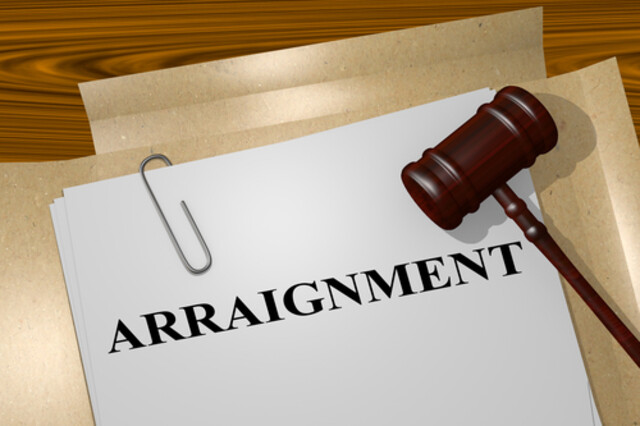| Key Information About Arraignments and Jail Time |
|---|
| Topic: Can You Go to Jail at an Arraignment |
| Definition of Arraignment: The first formal court appearance where charges are read, and pleas are entered |
| Possible Outcomes: Release on bail, release on recognizance, or jail |
| Factors Influencing Jail Time: Severity of crime, criminal history, and flight risk |
| Legal Representation: Highly recommended to have an attorney present |
| Jail Possibility: Yes, depending on the circumstances |
What Is an Arraignment and How Does It Work?

What Happens During an Arraignment?
During an arraignment, the defendant is formally read the charges against them by a judge. The purpose of this court appearance is to inform the defendant of the legal accusations they are facing. At this stage, the defendant may enter a plea, which could be guilty, not guilty, or no contest.
Do You Need a Lawyer at an Arraignment?
Yes, it is highly advisable to have legal representation during your arraignment. A lawyer can provide crucial guidance, explain the charges, and argue for bail if necessary. Without proper legal advice, a defendant may unknowingly make decisions that could harm their case.
Can You Be Taken to Jail After an Arraignment?

What Are the Circumstances Leading to Jail After Arraignment?
Yes, you can go to jail at an arraignment. Several factors may lead a judge to decide whether you should be detained until your trial or released. The main considerations include the severity of the crime, your criminal history, whether you pose a flight risk, and the risk you may present to the public.
How Is Bail Determined?
Bail is typically set based on several factors, including the seriousness of the crime, the defendant’s financial situation, and their past criminal behavior. In some cases, bail may be denied, leading to immediate detention after the arraignment.
| Factors Affecting Jail Time at Arraignment |
|---|
| Severity of the crime |
| Flight risk |
| Criminal history |
| Risk to the public |
| Availability of bail or release options |
What Is the Role of Bail at an Arraignment?
Can You Avoid Jail by Paying Bail?
If bail is granted, it acts as a temporary release guarantee. By posting bail, the defendant promises to return for future court dates. If the court believes the defendant is not a flight risk or a danger, bail may be granted, which prevents immediate jail time. However, failure to appear in court after posting bail can lead to forfeiture of the bail and a new warrant for arrest.
What Happens If Bail Is Denied?
If the court denies bail, the defendant will be remanded to custody and held in jail until the trial date. Denial of bail usually occurs in serious cases, such as violent crimes or when the defendant has a history of evading court dates.
Are There Cases Where Jail Is Immediate After Arraignment?
What Crimes Usually Lead to Immediate Detention?
Crimes such as murder, armed robbery, or significant drug offenses often result in immediate detention after arraignment. In these cases, the judge may feel that the defendant poses too much of a risk to be released on bail, leading to jail time right after the hearing.
How Does the Judge Decide Whether to Send Someone to Jail?
The judge takes into account multiple factors, including the type of crime committed, the defendant’s criminal background, and the likelihood of appearing for future court dates. In some cases, even a defendant with no prior criminal history might be detained if the crime is severe enough.
| Crimes Likely to Lead to Immediate Jail Time |
|---|
| Murder |
| Armed robbery |
| Drug trafficking |
| Aggravated assault |
What Are Your Rights at an Arraignment?
Can You Refuse to Enter a Plea?
Defendants have the right to remain silent or delay entering a plea in some cases. However, most jurisdictions require some form of plea at the arraignment. If a defendant refuses to enter a plea, the court may enter a “not guilty” plea on their behalf.
What Are Your Legal Rights at an Arraignment?
Defendants have the right to know the charges against them, the right to an attorney, and the right to a bail hearing. Understanding these rights can help a defendant navigate the legal process more effectively and avoid unnecessary jail time.
What Happens If You Are Taken to Jail After Arraignment?
How Long Can You Be Held in Jail After Arraignment?
If you are remanded to custody, you will remain in jail until your next court appearance or until bail is posted. In some cases, this could last for days or even months, depending on the court schedule and the nature of the case.
What Can You Do If You’re Sent to Jail After Arraignment?
If you’re sent to jail after your arraignment, you have the right to request a bail review hearing. This is a chance to ask the court to reconsider the bail amount or conditions of your release.
Conclusion
An arraignment is a critical first step in the legal process, and it is possible to be taken to jail during this proceeding. Whether or not you are detained depends on several factors, including the crime’s severity, your criminal history, and whether bail is granted. Having an attorney present can significantly impact the outcome of the arraignment and reduce the likelihood of immediate jail time. Understanding your rights and the role of bail can help you navigate this complex process.
Frequently Asked Questions (FAQs)
Can You Be Sent to Jail Without Bail at an Arraignment?
Yes, in cases of serious crimes or if the defendant is deemed a flight risk, the judge may deny bail, leading to immediate detention.
How Long Does an Arraignment Last?
Arraignments are usually brief, often lasting less than 30 minutes. The primary purpose is to inform the defendant of the charges and set bail if applicable.
Can You Get a Public Defender at an Arraignment?
Yes, if you cannot afford an attorney, the court will assign a public defender to represent you during the arraignment.
What Happens if You Miss an Arraignment?
If you fail to appear for your arraignment, a warrant may be issued for your arrest, and you could face additional charges.
Is Bail Always an Option?
No, bail is not guaranteed. In cases of violent or severe crimes, bail may be denied, and the defendant will be remanded to custody.
For more Informative articles you can visit our blog royalsprinter.com

